NF1 Basic & Translational Laboratory Scholars Program
Filling the immediate gap in funding needed for a strong pipeline of basic and translational scientists focused on NF1
Program overview
The Neurofibromatosis (NF) community has long benefited from the essential work of discovery and translational scientists. To help cultivate the next generation of leaders in NF1 research, NTAP at Johns Hopkins University has launched the NF1 Basic and Translational Laboratory Scholars Program—an initiative designed to support outstanding early-career scientists dedicated to advancing basic and translational research in NF1.
This program was developed in direct response to the termination of funding for the CDMRP Neurofibromatosis Research Program in 2025 and the resulting pause in the NF Research Academy. While NTAP expects the program’s eventual federal reinstatement, this new initiative offers critical interim support to ensure the momentum of NF1 research continues uninterrupted—and that the field’s emerging leaders receive the mentorship and resources they need to thrive.
Program Highlights:
- Target Audience: Early-stage research faculty (PhD or equivalent) in their first professional appointment and establishing independent labs focusing on NF1
- Support Includes: Laboratory salary support, research expenses, travel and education expenses and comprehensive mentorship
- Collaborative Environment: Scholars will work closely with clinicians and scientific thought leaders in the field
- Focus Areas: All NF1 topics welcomed, with special emphasis on cutaneous neurofibromas and cognitive function/development
- Professional Development: Training in communication, grant writing, regulatory topics, team science, and community engagement
Program Goals:
- Build a diverse community of NF1-focused scientists
- Accelerate impactful NF1 basic and translational research
- Prepare scholars for leadership in academia, government, or industry research focused on NF1
- Position scholars for future funding success (e.g., R01, U01, foundation grants)
This program complements the Children’s Tumor Foundation’s Young Investigator Award and represents a critical bridge to sustain momentum in NF1 science until long-term federal support resumes. Successful prior Young Investigator recipients will be given priority review.
Funding, mentoring, and resources
The award will consist of:
- Up to $100,000 per year for laboratory personnel, inclusive of fringe benefits*
- Research supplies support: maximum of $30,000 per year
- Travel/Education/Program building: $5,000 per year
- Mentorship stipend: $10,000 per year
- Up to three years
- 10% IDC rate
Eligibility requirements:
- Hold a PhD (or equivalent doctoral degree) in a relevant scientific field.
- Be within five years of your first faculty (or equivalent) appointment or have a confirmed contract for an upcoming position.
- Work at a non-profit research-focused institution, including federal and state research institutes. With appropriate justification, candidates at for-profit research entities will be considered.
- Demonstrate a track record of academic and research excellence.
- Show a strong commitment to NF1-focused research.
- Have a mentorship committee, including at least one lead mentor with expertise in NF1.
- Secure institutional support, including:
- Access to appropriate facilities and administrative resources
- Mentorship infrastructure and commitment to oversight
- Willingness to comply with all of NTAP's funding requirements.
- Investigators who have completed the Children’s Tumor Foundation’s Young Investigator Award are given priority review, although this is not an eligibility requirement.
Submit your Letter of Intent by October 20, 2025
How to apply
View the NF1 Basic and Translational Laboratory Scholars Program application requirements and guidelines
Application deadlines
RFA Release Date: July 1, 2025
Letter of Intent Due: October 20, 2025
Full Application Due: November 21, 2025
Notification Date: January 30, 2026
Funding Start Date: May/June 2026
Project Period: 2-3 years
